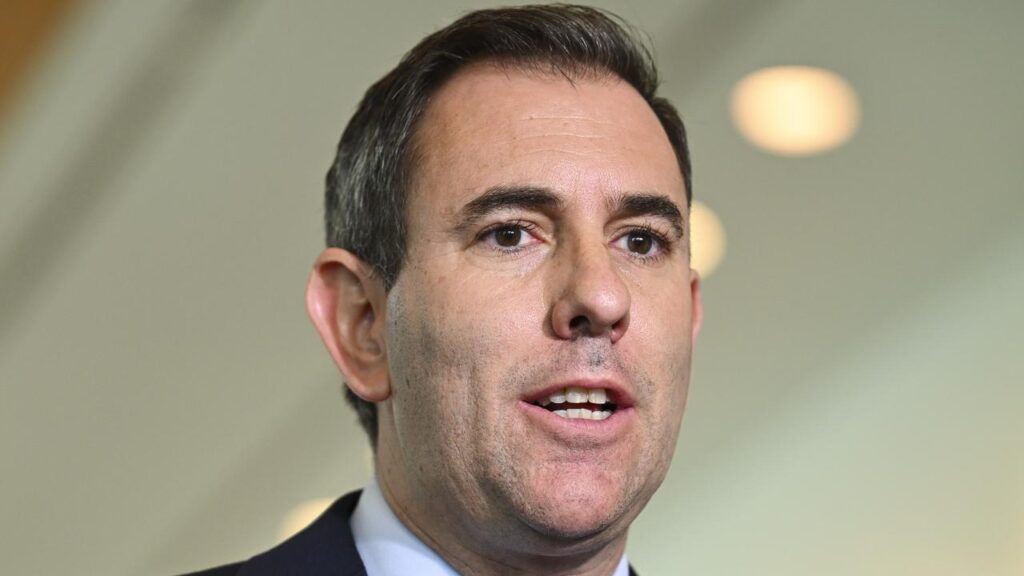Giving Aussies an extra week of paid annual leave wouldn’t cost a lot, expert claims
Written by admin on July 2, 2024
There are growing calls for Australian workers to be given an extra week of paid annual leave, with one expert dismissing claims it would cost businesses too much.
Late last year, the union for retail workers struck a deal with homewares giant IKEA to increase the leave entitlements of 4000 workers from 20 days per year to 25.
Similar arrangements have also been reached with Bunnings, Apple and Big W, in recognition of the hours and expectations required of retail workers, the union has said.
Experts say five weeks of annual leave should be the norm across a range of industries.
That’s sparked a recent push-back from many in the business community, with the Australian Industry Group slamming the proposal as too costly, especially at a time when many operators are struggling.
But in new analysis, Professor John Borland from the prestigious University of Melbourne said it “would cost employers less than you might think”.
For a worker on an annual salary, an employer pays 52 weeks in return for 48 weeks of work, and an extra five days off would cost about two per cent per annum.
“This might seem sizeable, but it’s less than the usual annual growth in average weekly ordinary time earnings for full-time employees, which is about three per cent per year over the past decade,” Professor Borland wrote for The Conversation.
Employment expert Arvin Bisbal, founder and chief executive of Workplace Partners, said many small and medium-sized businesses would struggle to absorb that increase.
“The additional financial burden of increased leave could significantly impact their ability to remain profitable and competitive,” Ms Bisbal said.
“A cost increase of two or three per cent sounds small, but it’s not. An increase in labour costs is not what’s needed right now.”
Professor Borland conceded employers might face additional costs to compensate for a loss of availability.
“Offsetting that, however, workers may become more productive,” he argued.
“Extra annual leave is also likely to some extent to be traded off for wage increases – as happened when the superannuation guarantee was introduced in 1992.
“Another proposal is that increased annual leave could partly substitute for state-level public holidays, such as the AFL Grand Final holiday in Victoria.”
It was a decade ago that the Productivity Commission recommended governments “examine whether there are any grounds for extending the existing 20 days of paid annual leave” in the future.
There hasn’t been a change to entitlements since 1974 when the four weeks figure was reached.
“Although total leave time did grow with the granting of extra public holidays, 50 years on, it is timely to look at increasing annual leave,” Professor Borland said.
Those in shift work occupations, such as nurses and firefighters, can already take five weeks of annual leave, he said.
Recent enterprise bargaining agreements struck between unions and IKEA, Bunnings, Big W and Apple have also resulted in an extra week of holidays.
“But for most of us in jobs with annual leave, four weeks is what we get,” he said.
Compared to other nations in the Organisation for Economic Cooperation and Development, Australia falls roughly in the middle when it comes to paid time off.
“About a quarter of countries have fewer statutory days of annual leave, with the United States having the lowest number, zero,” Professor Borland said.
“A quarter also have more days. Employees in several European countries, including Austria, get 25 days.”
Where, when and how Australians work has evolved over recent decades – and at a rapid pace during the pandemic.
Some companies here are trailing a four-day work week, with research conducted abroad showing the move has net positive productivity benefits.
Legislation was recently passed giving eligible employees the “right to disconnect” outside of hours.
“Employees will have the right to refuse contact outside their working hours unless that refusal is unreasonable,” Fair Work Australia explains. “This means an employee can refuse to monitor, read or respond to contact from an employer or a third party.”
That law takes effect from August 26 this year for major employers and from August 26 next year for small businesses.
And many workplaces continue to offer Covid-era hybrid working arrangements, with some days from home.
Despite that, productivity has fallen in recent times, erasing the gains seen during the pandemic.
Broadly speaking, and especially in these uncertain economic times, Ms Bisbal believes there’s more value in employers offering “job security and consistent working conditions over additional annual leave”.
More Coverage
“While the idea of an additional week of annual leave is certainly appealing and would undoubtedly provide additional rest and rejuvenation for many hardworking Australians, the reality is that the economic conditions simply cannot support such a change,” she said.
“Policies should focus on bolstering the capacity of businesses to create sustainable environments where businesses and employees can thrive, rather than actually imposing additional financial burdens that hinders their growth.
“Things such as tax relief and reducing regulatory burdens would probably be more beneficial than more leave.”








